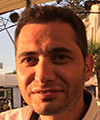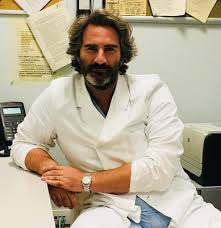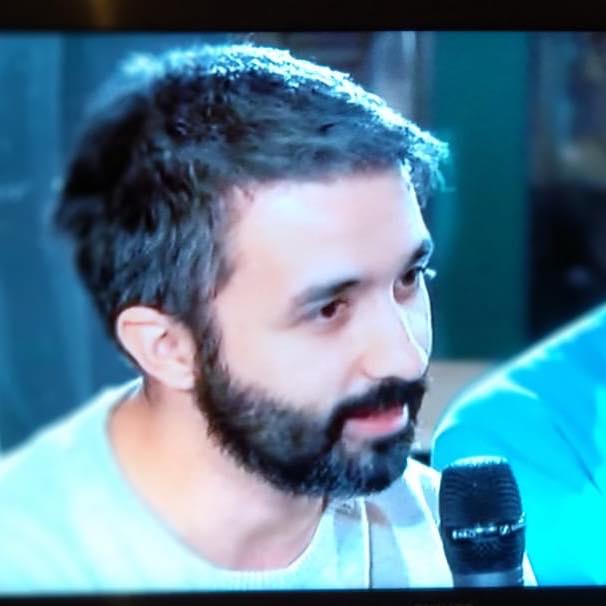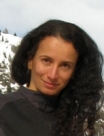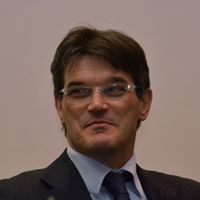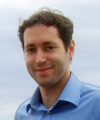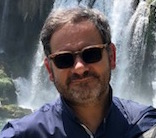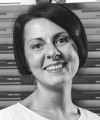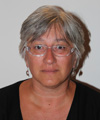Studying at the University of Verona
Here you can find information on the organisational aspects of the Programme, lecture timetables, learning activities and useful contact details for your time at the University, from enrolment to graduation.
Academic calendar
The academic calendar shows the deadlines and scheduled events that are relevant to students, teaching and technical-administrative staff of the University. Public holidays and University closures are also indicated. The academic year normally begins on 1 October each year and ends on 30 September of the following year.
Course calendar
The Academic Calendar sets out the degree programme lecture and exam timetables, as well as the relevant university closure dates..
| Period | From | To |
|---|---|---|
| 1° semestre SM | Sep 25, 2023 | Jan 12, 2024 |
| 2° semestre SM | Feb 26, 2024 | May 20, 2024 |
| Session | From | To |
|---|---|---|
| Appelli invernali SM | Jan 22, 2024 | Feb 23, 2024 |
| Appelli estivi SM | May 27, 2024 | Jul 2, 2024 |
| Appelli autunnali SM | Aug 28, 2024 | Sep 23, 2024 |
| Appelli sessione straordinaria SM | Jan 22, 2025 | Feb 24, 2025 |
| Session | From | To |
|---|---|---|
| Appelli estivi SM | Jul 4, 2024 | Jul 26, 2024 |
| Appelli autunnali SM | Oct 21, 2024 | Nov 18, 2024 |
| Appelli Sessione straordinaria SM | Mar 17, 2025 | Apr 16, 2025 |
| Period | From | To |
|---|---|---|
| Festa di Ognissanti | Nov 1, 2023 | Nov 1, 2023 |
| Festa dell'Immacolata | Dec 8, 2023 | Dec 8, 2023 |
| Vacanze di Natale | Dec 24, 2023 | Jan 1, 2024 |
| Vacanze di Pasqua | Mar 29, 2024 | Apr 1, 2024 |
| Festa della Liberazione | Apr 25, 2024 | Apr 25, 2024 |
| Festa dei lavoratori | May 1, 2024 | May 1, 2024 |
| Festività del Santo Patrono: San Zeno | May 21, 2024 | May 21, 2024 |
| Festa della Repubblica | Jun 2, 2024 | Jun 2, 2024 |
| Vacanze estive | Aug 12, 2024 | Aug 17, 2024 |
| Description | Period | From | To |
|---|---|---|---|
| Tirocinio SM | annuale | Sep 26, 2023 | Sep 25, 2024 |
| Description | Period | From | To |
|---|---|---|---|
| Corsi certificazione linguistica: consultare il calendario CLA | Sep 26, 2024 | Sep 30, 2025 |
Exam calendar
Exam dates and rounds are managed by the relevant Exercise Science Teaching and Student Services Unit.
To view all the exam sessions available, please use the Exam dashboard on ESSE3.
If you forgot your login details or have problems logging in, please contact the relevant IT HelpDesk, or check the login details recovery web page.
Should you have any doubts or questions, please check the Enrollment FAQs
Academic staff
 tommaso.maluta@univr.it
tommaso.maluta@univr.it
 andrea.monte@univr.it
andrea.monte@univr.it
Study Plan
The Study Plan includes all modules, teaching and learning activities that each student will need to undertake during their time at the University.
Please select your Study Plan based on your enrollment year.
1° Year
| Modules | Credits | TAF | SSD |
|---|
2° Year It will be activated in the A.Y. 2024/2025
| Modules | Credits | TAF | SSD |
|---|
| Modules | Credits | TAF | SSD |
|---|
| Modules | Credits | TAF | SSD |
|---|
| Modules | Credits | TAF | SSD |
|---|
Legend | Type of training activity (TTA)
TAF (Type of Educational Activity) All courses and activities are classified into different types of educational activities, indicated by a letter.
Advanced nutrition for sports (2023/2024)
Teaching code
4S003168
Teacher
Coordinator
Credits
3
Also offered in courses:
- Advanced nutrition for sports of the course Bachelor's degree in Sport and Exercise Science
- Advanced nutrition for sports of the course Master's degree in Preventive and Adapted Exercise Science
Language
English
Scientific Disciplinary Sector (SSD)
BIO/09 - PHYSIOLOGY
Period
2° semestre SM dal Feb 26, 2024 al May 20, 2024.
Courses Single
Authorized
Learning objectives
The elective course “Advanced Sports Nutrition”, offered in English, focuses on particularly complex aspects of human nutrition for sports. The course aims at providing technical competences and at stimulating a critical, quantitative and evidence-based approach that will allow the kinesiology expert to navigate the many captivating options advertised on the market. Through the use of the English language, the course aims at improving the understanding and the use of adequate scientific terminology and communication style; these are essential pre-requisites for an easy, independent and critical access to the international scientific literature.
Prerequisites and basic notions
Knowledge of Biochemistry (chemical structure of macronutrient molecules, main metabolic pathways involved in the synthesis and catabolism of carbohydrates, proteins and fats) Knowledge of general physiology, exercise physiology and the gastrointestinal system
Program
The elective course “Advanced Sports Nutrition”, offered in English, focuses on particularly complex aspects of human nutrition for sports. The course aims at providing technical competences and at stimulating a critical, quantitative and evidence-based approach that will allow the kinesiology expert to navigate the many captivating options advertised on the market. Through the use of the English language, the course aims at improving the understanding and the use of adequate scientific terminology and communication style; these are essential pre-requisites for an easy, independent and critical access to the international scientific literature.
1. Nutrition for sports: the basics
2. Nutrition for sport: practical training on clinical cases
3. How to eat around training and competition: the basics
4. How to eat around training and competitions: practical training on clinical cases
5. High-Carbohydrate diets for sport
6. High-Protein diets for sport
7. Hydration guidelines
8. Vegetarian diet and sport
9. Gastrointestinal problems in athletes
Bibliography
Didactic methods
Teaching will be in person, in problem-based learning (PBL) and flipped classroom mode. The teaching materials will be made available to the student in advance of the classroom work (pdf slides, in-depth materials).
Learning assessment procedures
The evaluation will be based on three items: Written test Frequency Independent activity on Moodle The exam consists of a written test of 16 multiple choice questions (with 5 possible answers and only one correct) to be carried out within 45 minutes. The exam methods are identical for attending and non-attending students. One point will be awarded for each correct answer. Incorrect answers will have zero points. The outcome of the written exam is communicated promptly by the teacher via the esse3 platform. Candidates must accept or refuse the vote using the procedure provided on the "esse3.cineca" application within the established deadline. In the absence of communication in this regard, the corresponding evaluation out of thirty will be automatically recorded. The ongoing tests will consist of 4-6 questions per lesson which focus on the preparatory teaching material for the lessons in flipped classroom mode and which will be administered remotely with the Moodle platform.
Evaluation criteria
For the written test, the grade will be calculated in thirtieths as the number of correct answers multiplied by 2. The attendance grade will be 30 for 100% attendance and 18 for 50% attendance. Intermediate frequencies will give rise to proportional scores while no points will be awarded for a frequency lower than 50%. The grade relating to independent activity on Moodle will be formulated as follows: 30/30 will be attributed to people who download and view 100% of the teaching material in time for the lessons and who correctly answer 80% of the questions in the ongoing tests. 18/30 will be awarded to people who download and view 60% of the teaching material in time for the lessons and who correctly answer 50% of the questions in the ongoing tests. Intermediate performances will give rise to proportional scores while no score will be awarded if less than 60% of the material is downloaded in time and if less than 50% of the ongoing test questions are answered correctly.
Criteria for the composition of the final grade
The final mark will derive from the weighted average of the mark of the written test + the mark of the presence + the mark of the ongoing questions: - the weight of the exam in determining the final mark will be 60% - the weight of the presence will be 20% - the weight of ongoing applications will be 30%
Exam language
English
Type D and Type F activities
I Regolamenti dei corsi di laurea e di laurea magistrale di scienze motorie prevedono che gli studenti possano completare il proprio piano didattico, frequentando oltre agli insegnamenti obbligatori anche delle attività formative a scelta, per approfondire alcuni aspetti tematici o settori di interesse, in coerenza con il proprio percorso formativo.
Le attività formative a scelta di ambito D sono indicate all’interno del piano didattico del corso di studio prescelto, mentre le attività formative di ambito F sono individuate da una apposita commissione di docenti. Queste ultime attività possono essere conferenze, seminari, webinar, altro e vengono acquisite con una valutazione e non con un voto in trentesimi.
Link attivo alla pagina: Regole e Tabelle delle attività a scelta
COMPETENZE TRASVERSALI
| years | Modules | TAF | Teacher |
|---|---|---|---|
| 1° | Anthropometry | D |
Carlo Zancanaro
(Coordinator)
|
| 1° | Biochemistry for sport | D |
Massimo Donadelli
(Coordinator)
|
| 1° | Methodology of sport activities measures | D |
Cantor Tarperi
(Coordinator)
|
| years | Modules | TAF | Teacher | |
|---|---|---|---|---|
| 1° | Sports and drugs | D |
Giovanna Paolone
(Coordinator)
|
|
| 1° | Forensic medicine and social security | D |
Aldo Eliano Polettini
(Coordinator)
|
|
| 1° | Research methodology applied to sport | D |
Anna Pedrinolla
(Coordinator)
|
|
| 1° | Statistics applied to movement sciences | D |
Maria Elisabetta Zanolin
(Coordinator)
|
|
| 2° | Clinical biochemistry applied to sport activity | D |
Giuseppe Lippi
(Coordinator)
|
|
| 1° 2° | Outdoor sport activity for health and wellbeing | D |
Anna Pedrinolla
(Coordinator)
|
|
| 1° 2° | Physical bases of exercise prescription | D |
Silvia Pogliaghi
(Coordinator)
|
|
| 1° 2° | Advanced nutrition for sports | D |
Silvia Pogliaghi
(Coordinator)
|
|
| 1° 2° | Sport physiology | D |
Silvia Pogliaghi
(Coordinator)
|
|
Career prospects
Module/Programme news
News for students
There you will find information, resources and services useful during your time at the University (Student’s exam record, your study plan on ESSE3, Distance Learning courses, university email account, office forms, administrative procedures, etc.). You can log into MyUnivr with your GIA login details: only in this way will you be able to receive notification of all the notices from your teachers and your secretariat via email and soon also via the Univr app.
Graduation
List of theses and work experience proposals
Student mentoring
Gestione carriere
Orario lezioni
L’orario delle lezioni comprende
Lezioni Frontali in aula
Esercitazioni e laboratori
Questi ultimi sono organizzati per gruppi dai singoli docenti responsabili dei corsi.
L'orario è pubblicato nel portale studenti
Modalità di frequenza
Vige l'obbligo di frequenza al 70% come specificato nel Regolamento di ogni singolo corso di laurea e laurea magistrale:
Ulteriori informazioni:
L'accesso alle pagine Moodle dei singoli insegnamenti è vincolato alla compilazione del piano di studi.
App Univr Lezioni, FAQ e guida all'utilizzo sono disponibili al seguente link: orario-lezioni-e-modalita-di-frequenza
Comunicati: Avvisi per studenti
Internships
Internships are aimed at enabling students to gain direct knowledge of the world of work and to acquire specific professional skills.
Internships are carried out under the responsibility of an individual lecturer, and can be carried out in professional firms, public administration bodies and companies recognised by the University of Verona.
Any CFU credits gained by doing internships will be recognised and recorded by the University in accordance with the relevant University regulations in force (Regolamento d’Ateneo per il riconoscimento dei crediti maturati negli stage universitari).
For further information on internships, please go to: https://www.univr.it/it/i-nostri-servizi/stage-e-tirocini.
Linguistic training CLA
Certificazione medica di idoneità
Riferimenti normativi principali: DM 24 aprile 2013 art. 3, GU 169 del 20-07-2013; Decreto del Ministro della Salute dell’8 agosto 2014 e s.m.i.
Per frequentare le attività dei corsi di Laurea e Laurea magistrale di Scienze motorie è obbligatorio presentare la certificazione medica di idoneità fisica per attività sportiva non agonistica. La certificazione è necessaria per accedere alle attività pratiche-esercitative e al tirocinio.
à COME OTTENERE LA CERTIFICAZIONE
La certificazione - riportante l’indicazione che è stato eseguito l’ECG a riposo - può essere rilasciata da:
- centri o servizi di medicina dello sport delle ASL (ora ATS) e delle aziende ospedaliere
- istituti della Federazione Medico Sportiva Italiana
- centri pubblici o privati autorizzati:
- dai medici di medicina generale di libera scelta, relativamente ai propri assistiti;
- dal medico specialista in medicina dello sport.
L’ECG a riposo deve essere ripetuto annualmente.
E’ ammesso anche il certificato medico di idoneità alla pratica sportiva agonistica, per chi ne fosse già in possesso.
à SCADENZA PER LA PRESENTAZIONE
La certificazione medica deve essere prodotta al momento dell'immatricolazione e, comunque, entro l’inizio delle lezioni alla Segreteria Corsi di Studio Scienze motorie. Spetta agli studenti rinnovarla annualmente alla scadenza - per ogni anno di iscrizione in corso o fuori corso. La Segreteria effettuerà periodicamente dei controlli sulla consegna dei certificati.
NOTA: Studenti immatricolati a seguito di SUBENTRO/RIPESCAGGIO/TRASFERIMENTO IN INGRESSO: se non è possibile rispettare la scadenza di presentazione del certificato sopra indicata, avvisare la Segreteria Corsi di Studio Scienze, scrivendo all’indirizzo certmed.scienzemotorie@ateneo.univr.it
à MODALITA’ DI CONSEGNA
La certificazione va inviata alla Segreteria Corsi di Studio Scienze motorie dalla propria e-mail istituzionale nome.cognome@studenti.univr.it all’indirizzo certmed.scienzemotorie@ateneo.univr.it.
Student login and resources
Competenze linguistiche
DOPO LA LAUREA TRIENNALE
Per proseguire gli studi in uno dei corsi di Laurea Magistrale dell'ambito delle Scienze motorie è necessario possedere competenze linguistiche almeno di livello B1 informatizzato (o superiore) specificamente di lingua inglese, poichè i corsi di studio di livello superiore prevedono nel proprio piano didattico la presenza di insegnamenti o di moduli impartiti dai docenti direttamente in inglese.
Inoltre, tali competenze costituiscono requisito di accesso indispensabile per poter partecipare alla prova di ìngresso oppure per iscriversi ad una laurea magistrale.
La conoscenza di altre lingue diverse dall'Inglese NON può venire riconosciuta come "requisito" utile per l'accesso ai corsi di laurea magistrale. Tuttavia, la certificazione posseduta potrà essere valutata da un'apposita Commissione di docenti ed eventualmente riconosciuta in termini di crediti (CFU) a scelta dello studente, presentando domanda al momento dell'immatricolazione.
Si invita a leggere con attenzione i bandi di concorso annuali per l'ammissione ai corsi di laurea magistrali per maggiori informazioni - consultare nel sito del corso di studio anche la sezione "Iscriversi".

 +39 0458425112
+39 0458425112
